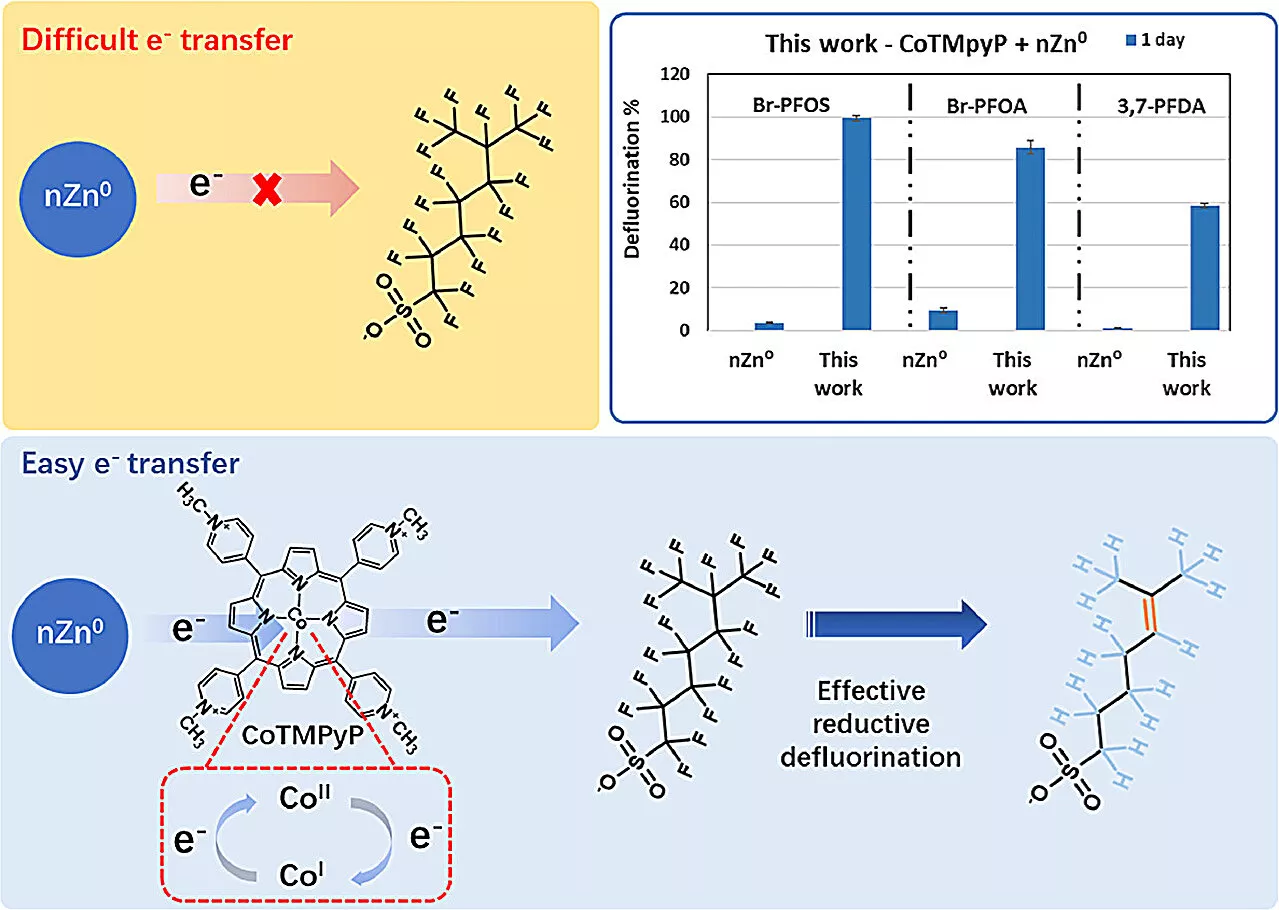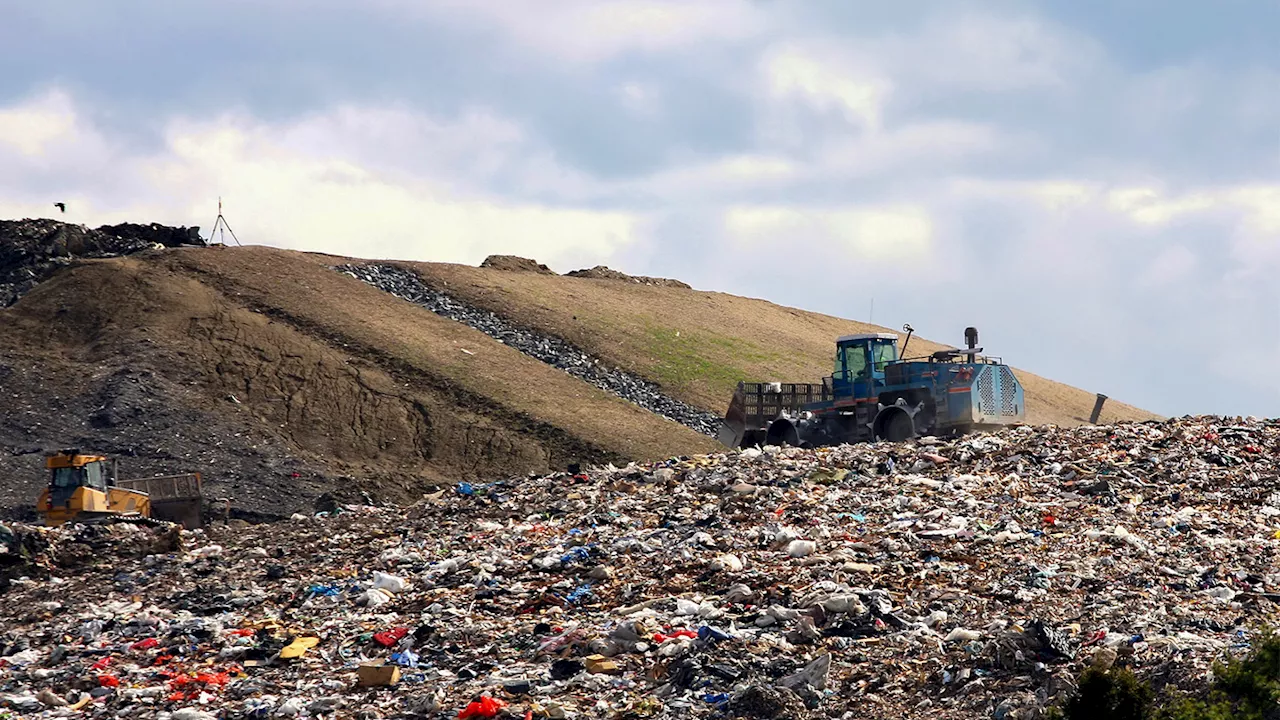Toxic chemicals called PFAS are in pesticides sprayed on food and included in pet flea treatments and home bug repellants, a new study found.
Called “forever chemicals” because of how long they remain in the human body and environment, perfluoroalkyl and polyfluoroalkyl substances, or
in pesticides used in both agricultural and residential pest control, including pet flea treatments. “This is really the first study in the US to comprehensively look at how pesticides can be contributing to global contamination that scientists see occurring in our waterways.” The , the chemicals are not often considered in federal pesticide regulatory efforts or in toxicologic evaluations of pesticides, said Stephanie Eick, an environmental and reproductive epidemiologist and assistant professor at Emory University in Atlanta. She too was not involved with the new study. “The regulations surrounding pesticides are currently outdated and ineffective, so this discovery of
ingredients from pesticide manufacturing, the spokesperson added. The American Chemistry Council, an industry association, told CNN that pesticides are among the most stringently regulated products in the United States. “We would need time to review closely, but it appears these researchers are lumping many pesticides in as
components to pesticides because it also increases the stability of the pesticide in the fields,” he said. “The pesticide is less likely to be broken down as quickly, and so it can stay effective for a longer period of time without reapplication.
is increasing,” she said. “This seems to be a trend.” into the contents, according to the paper. After first learning in 2020 about possible
South Africa Latest News, South Africa Headlines
Similar News:You can also read news stories similar to this one that we have collected from other news sources.
 New method to degrade PFAS 'forever chemicals' found effective in the labPer-and poly-fluoroalkyl substances (PFAS) are known as 'forever chemicals' because they are notoriously resistant to degradation. Due to their stable chemical structure, PFAS—which are found in thousands of variants—are used in oil and grease-resistant food packaging, non-stick cookware, cosmetics, clothing, and fire-fighting foams.
New method to degrade PFAS 'forever chemicals' found effective in the labPer-and poly-fluoroalkyl substances (PFAS) are known as 'forever chemicals' because they are notoriously resistant to degradation. Due to their stable chemical structure, PFAS—which are found in thousands of variants—are used in oil and grease-resistant food packaging, non-stick cookware, cosmetics, clothing, and fire-fighting foams.
Read more »
 Wild Boar Has Five Times More Toxic PFAS Than Humans Allowed To EatEvolutionary ecologist and ornithologist as well as a science writer and journalist. I'm active on many social medias (linked here) and I curate my writing on Medium and Substack.
Wild Boar Has Five Times More Toxic PFAS Than Humans Allowed To EatEvolutionary ecologist and ornithologist as well as a science writer and journalist. I'm active on many social medias (linked here) and I curate my writing on Medium and Substack.
Read more »
 PFAS 'forever' chemical laws need an overhaul—recent court rulings highlight the loopholesAs awareness of toxic, synthetic chemical pollution from per- and polyfluorinated substances (PFAS) increases, more legal settlements in billion dollar amounts are being made between chemical companies and public water suppliers, both in the US and Europe.
PFAS 'forever' chemical laws need an overhaul—recent court rulings highlight the loopholesAs awareness of toxic, synthetic chemical pollution from per- and polyfluorinated substances (PFAS) increases, more legal settlements in billion dollar amounts are being made between chemical companies and public water suppliers, both in the US and Europe.
Read more »
 How worried should we be about PFAS, the 'forever chemicals'?Miriam Bergeret is a science writer and editor based in Toronto, Canada. Miriam holds a master's degree in laboratory medicine and pathobiology from the University of Toronto, where she also studied science journalism and communication.
How worried should we be about PFAS, the 'forever chemicals'?Miriam Bergeret is a science writer and editor based in Toronto, Canada. Miriam holds a master's degree in laboratory medicine and pathobiology from the University of Toronto, where she also studied science journalism and communication.
Read more »
 Toxic Forever Chemicals Pass Into Human Skin, Scientists Warn'The ability of these chemicals to be absorbed through skin has previously been dismissed,' the researchers say.
Toxic Forever Chemicals Pass Into Human Skin, Scientists Warn'The ability of these chemicals to be absorbed through skin has previously been dismissed,' the researchers say.
Read more »
 Landfills belch toxic ‘forever chemicals’ into the airAn analysis of samples from three Florida landfills shows that landfill gas can carry more PFAS than the liquid that leaches from the waste.
Landfills belch toxic ‘forever chemicals’ into the airAn analysis of samples from three Florida landfills shows that landfill gas can carry more PFAS than the liquid that leaches from the waste.
Read more »
